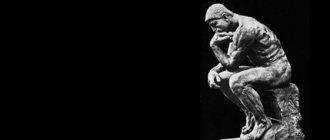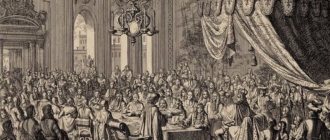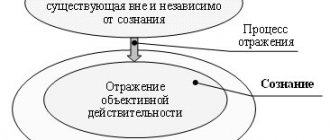What is humanism and humanity?
This concept comes from a Latin word that translates as “humane.” A humanist is a person who highlights the values of the human person. The point is to recognize the human right to freedom, development, love, happiness and so on. In addition, this also includes the denial of any violence towards living beings. The concept of humanism indicates that the basis of a worldview lies in a person’s ability to sympathize and help other people. It is important to note that the manifestation of humanity should not go against the interests of the individual.
Humanism in philosophy
This concept is used in various fields, including philosophy, where it is presented as a conscious focus on humanity without borders. There are a number of characteristics that help to understand the meaning of humanism:
- For every person, other people should be the highest value, and they should be a priority over material, spiritual, social and natural benefits.
- In philosophy, humanism is a position that describes that a person is valuable in himself, regardless of social status, gender, nationality and other differences.
- One of the dogmas of humanism says that if you think well about people, they will certainly become better.
Humanism
Intelligence
One of the core humanistic values is the importance placed on truth and rational thought as the only proven way to provide knowledge of the facts of the universe.
Religious people will often give excellent or comforting answers, even if they doubt how true they are, or will rely on unquestioned dogma in the face of evidence that it is clearly false. Often critics of the so-called new atheism dismiss criticism of religion by saying that it relies on religion as a set of assumptions, hypotheses that seem meaningless. Instead, these critics say, religion is a felt experience, a relationship, or something else.
It is difficult for humanists to see the difference, except in comparative antiquity, between mainstream religion and "new age" people who accept mindless nonsense about the healing powers of crystals, about feng shui, astrology or alternative medicine and who refuse to test it in controlled trials. For humanists, faith must be proportionate to evidence. Humanists see the value of skepticism when evidence is inadequate and reject dogma, religious, political or any other kind.
Thus, humanists reject ideas and theories that are not reasonable and do not accept concepts that are not supported by adequate evidence. The goal of humanists is to get as close to the truth as possible. They think it's crazy to believe things without enough evidence.
Humanity and humanism - the difference
Many people often confuse these concepts, but in fact, they have both common and distinctive features. Humanism and humanity are two inseparable concepts that imply the protection of individual rights to freedom and happiness. As for humanity, this is a certain human trait that manifests itself in a positive attitude towards other people. It is formed as a result of a conscious and stable understanding of what is good and what is bad. Humanity and humanism are interrelated concepts, since the first is formed by imitation of the principles of the second.
Features of the humanistic worldview
Despite the presence of many directions in humanism of the 15th century, the basis of the doctrine was supported by the majority of scientists.
Not everyone agreed with the ideas of civil humanism, only a part supported the Florentine Neoplatonists, and not all humanists shared the views of Valla or Alberti. Nevertheless, humanism had a strong platform based on the principles of humanism common to all. Note 1
A distinctive feature of humanism is its focus on people. In ancient philosophy, the center of attention was natural-comic life; in the Middle Ages, religious life became the center of attention, solving the problem of salvation. The revival puts secular life at the center, including human activities to achieve happiness in earthly existence. Philosophy takes on the function of science, which is obliged to guide a person to find his place in life.
Are you an expert in this subject area? We invite you to become the author of the Directory Working Conditions
The philosophy of humanism is anthropocentric in nature. At the center of everything is not God, but Man. God is the beginning of all things on earth, man is the center of the whole world. Accordingly, society does not appear by the will of God, but as a result of human activity. A person’s activities and thoughts have no boundaries; he is capable of anything. The worldview of the Renaissance man is clearly humanistic in nature. Man is recognized as a free being, who is the creator of the entire world around him and, most importantly, of himself. Renaissance philosophers believed in God; they could not be atheists. But, giving God the role of creator of both the world and man, they believed that God endowed man with free will. Thus, a person independently determines his destiny, wins a place in the sun, and is responsible for the result of his actions.
Signs of humanism
The main features of humanism are known, which fully reveal this concept:
- Autonomy . The ideas of humanism cannot be isolated from religious, historical or ideological premises. The level of worldview development directly depends on honesty, loyalty, tolerance and other qualities.
- Fundamentality . The values of humanism are important in the social structure and are the primary elements.
- Versatility . The philosophy of humanism and its ideas are applicable to all people and all social systems. In the existing worldview, one can go beyond the limits, since every person has the right to life, love and other characteristics.
Human inner world
This concept is considered by both philosophers and psychologists and teachers. It is considered as a subjective reality, that is, everything that is the internal content of psychological activity is characteristic only of one specific person. This determines the individuality and uniqueness of each person. On the other hand, this concept is of great importance when considering the humanistic values of a person.
The formation of the inner world is indirect. This process is associated with certain external conditions. This situation is explained by the fact that the inner world of a person is a specific form of reflection of the external world, which is characterized by its own spatio-temporal characteristics and content.
Some religious and philosophical concepts believe that a person initially has a certain inner world, and during his life his discovery and cognition occurs. Other ideas about this category are based on a more materialistic basis. According to this point of view, the emergence and development of the inner world occurs in the process of formation of a person as an individual, who is characterized by activity associated with the reflection and development of the surrounding reality.
Humanism - types
There are several classifications of humanists, which differ in selection criteria. If we focus on the historical source and content, we can distinguish nine types of humanists: philosophical, communist, cultural, scientific, religious, secular, slaveholding, feudal, natural, environmental and liberal. It is worth considering what humanism is by priority:
- folk - living for the happiness of the people;
- human rights – advocating for the rights and freedoms of all people;
- pacifist - people who are peacemakers who fight against everything harmful on earth;
- public – providing assistance to children, disabled people and other people in need.
Humanistic values in education
One of the goals of modern education is personal development. Spirituality and morality, related to humanistic values, act as the most important, basic characteristics of a person. In this case, the child acts as the center of spiritual life. Spiritual and moral education is an organized, purposeful process, which represents both external and internal (emotional and heartfelt) influence of the teacher on the spiritual and moral sphere of the developing personality. This area is system-forming in relation to the child’s inner world. Such an impact is determined by its complex, integrated nature in relation to the feelings, desires, and opinions of the individual. It is based on a certain system of humanistic values embedded in the content of education. The actualization of this system is determined by a certain position of the teacher.
The principle of humanism
A person must develop and receive a certain set of knowledge and develop skills that he will return to the world through social and professional activities. A humanistic worldview implies compliance with the legal and moral norms of society and respect for social values. The principle of humanism implies adherence to a number of rules:
- Decent attitude of society towards all people, without regard to physical, financial and social status.
- When figuring out what humanism is, it is worth pointing out one more principle - the right of every person to be himself must be recognized.
- It is important to understand mercy as a step towards humanism, which should be based not on pity and sympathy, but on the desire to help a person integrate into society.
The role of science
Science is simply the best, almost the only, way to know for sure about the world, but its answers are always provisional, always open to reexamination in the light of new evidence. They are not eternal truths, never irrefutable. Newton's laws were overthrown by Einstein; Einstein's theories cannot account for quantum physics; String theory may undo current ideas.
What science gives is not the truth, but a gradual approach to the truth. Science refuses to accept dogma, refuses to allow anything to be certain, admits that it can make mistakes, but contains its own means for correcting them. Of course, scientists can make mistakes, but this is human error, not an error in the method. And this spirit of open-minded, intelligent inquiry is an important part of humanistic ideas.
Humanism in the modern world
Recently, the ideas of humanism have undergone changes, and it has even lost its relevance, since for modern society the ideas of ownership and self-sufficiency, that is, the cult of money, have come to the fore. As a result, the ideal was not a kind person who is not alien to the feelings of other people, but a self-made person who does not depend on anyone. Psychologists believe that this situation leads society to a dead end.
Modern humanism has replaced love for humanity with the struggle for its progressive development, which directly affected the original meaning of this concept. The state can do a lot to preserve humanistic traditions, for example, free education and medicine, raising wages for public sector employees will prevent the stratification of society into property groups. A ray of hope that all is not lost and humanism can still be restored in modern society are people who are not yet alien to the value of justice and equality.
Spirituality
This concept is quite controversial for humanists, since they reject the existence of a transcendental kingdom, souls and spirits. However, this experience is still very real, even if it is of natural origin. The fact is that the mystical feeling of expansion, union, has no specific intellectual content. In addition, one must take into account the breadth of the humanist tradition, represented by some thinkers who are recognized as representatives of humanism, although this concept did not exist previously. This tradition includes Confucius, Epicurus, the Stoic Marcus Aurelius, David Hume, John Locke, the French philosophers, Thomas Paine, Mary Wollstonecraft, George Eliot. Accordingly, spirituality should be seen as an important part of the humanistic value system.
Facts about Humanism
There is a lot of interesting information related to this area, since over the years humanism has been tested, adjusted, declined, and so on.
- The famous psychologist A. Maslow and his colleagues back in the late 50s wanted to create a professional organization that would consider the manifestation of humanism in society from the perspective of psychology. It was determined that in the new approach self-realization and individuality should come first. As a result, the American Association for Humanistic Psychology was created.
- According to history, the first true humanist is Francesco Petrarca, who put man on a pedestal as an interesting and self-sufficient person.
- Many people are interested in what the term “humanism” is in its interaction with nature, and so it implies caring for the environment and showing respect for all living beings on earth. Ecohumanists strive to recreate lost elements of nature.
Morals and ethics
Human moral instincts are not necessarily a guide to how to behave, but they are a good starting point because they arise from patterns of behavior that promote group survival that have been shaped, developed, and adapted over thousands of years by moral philosophy and practical reasoning.
But circumstances change situations, and specific formulations of morals and ethics may become outdated. People have a responsibility to maintain morality. The purpose of morality, as humanists see it, is not to conform to some model. It exists to serve man.
Moral meaning, along with beliefs, provides the basis for ethics, within which humanists may apply utilitarian ethics or virtue ethics, or may take any number of positions. However, humanistic morality does not go so far as to establish fixed rules. This requires people to make judgments within the circumstances of each situation. This flexibility, this commitment to dialogue and ethical discourse is fundamental to humanistic moral values. They play a big role in the formation of personality.
Thus, humanistic morality gives value and meaning to the individual. The interdependence of the individual and society implies a person's responsibility towards society - individual responsibility for his behavior as it affects society.
Humanistic orientation of the teaching profession article on the topic
Humanistic orientation of the teaching profession
Society could not exist and develop if the younger generation, replacing the older generation, was forced to start all over again, without creatively mastering and using the experience that it inherited.
Since the emergence of the teaching profession, teachers have primarily been assigned an educational, single and indivisible function. A teacher is an educator, a mentor. This is his civic, human purpose.
Many teachers in their practice are faced with the problem of the need to humanize the pedagogical process. Humanism is a system of views that recognizes the value of man as an individual, his right to freedom, happiness, development and manifestation of all abilities. This is a system that considers the welfare of man as the criterion for assessing social phenomena, and the principles of equality, justice, and humanity as the desired norm of relations in society. The works of innovative teachers Sh. A. Amonashvili and V. A. Sukhomlinsky are invaluable aids for them.
The world is a complex system, constantly striving for balance, for equilibrium. And here, in addition to the classic Good and Evil, a significantly larger number of parameters are put on the scales. Ultimately, these same Good and Evil can be looked at in different ways, so to speak, from different angles. And then the meaning of these words can change greatly, up to the complete replacement of one concept with another. Never forget Uncle Einstein. Everything is relative and makes sense only in relation to a certain coordinate system.
All living things exist thanks to the transfer of information at the genotype level. The transmission of this information is managed by nature and in this matter it has no equal yet. But in addition to his physical part, a person also has a spiritual part, without which he is nothing.
It is this very spiritual side in a person that a teacher is obliged to cultivate. He has the power not only to pass on the experience of all previous generations to his students, but also to establish the correct “coordinate system” in the minds of the people who came to learn from him. Because this is where any business begins. He is, first of all, a man, but a man called, using his personal experience and spiritual strength, to educate a new, worthy continuation of the human race.
Plus, the teacher is a guide to the world of science or the type of activity that he teaches. Undoubtedly, he must be a first-class specialist in this field, he simply must love his job, and not only the subject itself, but also its teaching. After all, knowledge must be presented correctly.
The Teacher is far from practical politics, he does not manage high-tech surface-to-surface missiles and does not have access to all kinds of chests with red buttons, and he doesn’t need it, because his methods of changing the World are completely different. In all the diversity of the man-made World, there is one weakness - it is too dependent on man and the meaning of any human action, as I have already said, will be perceived depending on the point of view adopted in the consciousness of the evaluator. And a lot of things just come down to the fact that a person was not given a push, an impulse in time, and he got lost, succumbing to the inertia of consciousness and the instinct of the crowd. It is precisely such crowds, and the individuals who escape from them, whose unshakable monuments are placed on pedestals for the sake of eternal glory, who decide the fate of the world, freely disposing of many lives. A person’s life path is in the hands of the person himself and only he is the master of his own destiny, but people are not born as a Man - they become one, or rather, the older generation “makes” a new one, which should be a worthy replacement - a step forward.[1]
“My practice of working with children and the scientific search for organizing their joyful and exciting life at school, creative and scientific collaboration for a long time with many teachers of experimental classes contributed to the fact that I developed some pedagogical beliefs based on the optimistic, humanistic principles of teaching and education. The effective implementation of the system of education and training of children of primary school age depends entirely on the personality of the teacher.
First, love children for who they are. One must equally love the naughty one, the obedient one, the smart one, the slow-witted one, the lazy one, and the diligent one. Kindness and love for children will not allow you to treat them rudely, infringe on your pride and dignity, and not rejoice in everyone’s successes.
Secondly, be able to understand children, that is, take their position, accept their concerns and affairs as serious and take them into account. These concerns and matters should be treated not with condescension, but with respect. Understanding children means not subordinating them to our power, but, based on their today's life, cultivating the shoots of their tomorrow's life. Understanding the movements of the soul and the experiences of the child’s heart, his feelings and aspirations, the teacher will be able to engage in in-depth education, when the child himself becomes his comrade-in-arms in his own upbringing.
Thirdly, it is necessary to be optimistic and believe in the transformative power of education. We are not talking about philanthropic optimism, when, with folded arms, the teacher waits with hope for the child to become wiser and show the ability to think, so that he can then begin to educate him and begin to develop his consciousness. We are talking about active optimism, when the teacher delves deeply into the inner world of the child - and, depending on this, looks for ways of upbringing, training and development.
Fourthly, the teacher should have all the best that people like in a person: a smile, sternness, restraint, modesty, sensitivity, sincerity, intelligence, sociability, and love of life.
It is very important for a teacher to strive to be this way. He is an intermediary between the child and the spiritual values of past and modern generations. These values, knowledge, moral and ethical standards do not reach children in a sterilized form, but carry the teacher’s personal traits and assessments. A humane teacher, introducing children to knowledge, simultaneously conveys to them his character and appears before them as an example of humanity. For a child, knowledge does not exist without a teacher; only through love for his teacher does a child enter the world of knowledge and master the moral values of society. At primary school age, the highest authority for children is the teacher.”[2]
“A sense of self-worth, honor, and pride awakens when you can invest a part of your spiritual strength in another person, striving to make her better. The teacher himself must be a highly moral person in order to achieve success in raising children. Education represents the unity of the spiritual life of the teacher and students. He advised young school principals to first of all achieve a friendly, creative atmosphere in the teaching staff. The humanistic orientation of Sukhomlinsky’s pedagogy united students and teachers. Vasily Aleksandrovich did not believe in the saving power of punishment; he was against, as he said, “pedagogical extremism”; he was convinced that education could be organized in such a way that there was no need for punishment at all. This is truly possible if spiritual unity is established between the teacher and the students, if at some stage of development of mutual relations they become like-minded people in the affirmation of high moral values.
Sukhomlinsky teaches that a teacher, an educator, is called upon to feel an active being in each of his pupils, to read his soul, to guess his complex spiritual world, but at the same time to protect and spare his inviolability, his vulnerability, his vulnerability. He warned against inflicting unexpected wounds and insults, worries and worries, and insisted on respect for the student’s personality. But the mentor must pass on this ability to his student. Only by respecting the dignity of another can a person gain respect for himself. There is no greater evil in human relationships than increased attention to one’s own person and indifference (or even worse - arrogance) to others. “How important it is for children to learn to feel the state of mind of a friend, to recognize someone else’s grief, to experience it as their own.” Childhood and school years should be years of cultivating warmth. It is not inherited genetically, it is acquired along with other character traits and is formed by the process of upbringing. Childhood is the most important period of human life. And how childhood passed, who led the child by the hand during childhood, what entered his mind and heart from the world around him - this decisively determines what kind of person today’s child will become.”[3]
The teaching profession has historically had two social functions: adaptive and humanistic (“human-forming”).
The adaptive function is associated with the adaptation of the student to the specific requirements of the modern sociocultural situation, and the humanistic function is associated with the development of his personality and creative individuality.
On the one hand, the teacher prepares his students for the needs of the moment, for a certain social situation, for the specific demands of society. But, on the other hand, he, while objectively remaining the guardian and conductor of culture, carries within himself a timeless factor. Having as a goal the development of personality as a synthesis of all the riches of human culture, the teacher works for the future. The work of a teacher always contains a humanistic, universal principle. Conscious bringing it to the fore, the desire to serve the future characterized progressive teachers of all times. Thus, a famous teacher and figure in the field of education of the mid-19th century. Friedrich Adolf Wilhelm Diesterweg, who was called the teacher of German teachers, put forward a universal goal of education: service to truth, goodness, beauty. “In every individual, in every nation, a way of thinking called humanity must be instilled: this is the desire for noble universal goals.” In realizing this goal, he believed, a special role belongs to the teacher, who is a living instructive example for the student. His personality earns him respect, spiritual strength and spiritual influence. The value of the school is equal to the value of the teacher.
The great Russian writer and teacher Lev Nikolaevich Tolstoy saw in the teaching profession, first of all, a humanistic principle, which finds its expression in love for children. “If a teacher has only love for his work,” Tolstoy wrote, “he will be a good teacher. If a teacher has only love for the student, like a father or mother, he will be better than the teacher who has read all the books, but has no love for either the work or the students. If a teacher combines love for both his work and his students, he is a perfect teacher.”[4]
A person’s belonging to a particular profession is manifested in his characteristics of activity and way of thinking. According to the classification proposed by E.A. Klimov, the teaching profession belongs to the group of professions whose subject is another person. But the teaching profession is distinguished from a number of others, first of all, by the way of thinking of its representatives, a heightened sense of duty and responsibility. In this regard, the teaching profession stands apart, standing out as a separate group. Its main difference from other professions of the “person-to-person” type is that it belongs to both the class of transformative and the class of management professions at the same time. Having the formation and transformation of personality as the goal of his activity, the teacher is called upon to manage the process of her intellectual, emotional and physical development, the formation of her spiritual world.
The main content of the teaching profession is relationships with people.
A teacher, like any other leader, must know well and imagine the activities of the students whose development process he leads. Thus, the teaching profession requires dual training - human science and special.
The uniqueness of the teaching profession lies in the fact that by its nature it has a humanistic, collective and creative character.
A humanist teacher not only believes in democratic ideals and the high purpose of his profession. Through his activities he brings the humanistic future closer.
[1] S. Lem
[2] Amonashvili Sh. A. Hello children. M.: Education, 1983
[3] Sukhomlinsky V. A. Not only with the mind, but also with the heart. Collection of articles and fragments from works. M.: Young Guard, 1986
[4] Slastenin V., Isaev I. et al. Pedagogy A textbook for students of pedagogical educational institutions
Relevance of humanistic theories
Speaking about Maslow's theory, we have already mentioned that his construction cannot be viewed linearly as the replacement of a satisfied need with the next one that has not yet been satisfied. Moreover, history knows a lot of facts when great scientists, artists and musicians vegetated in deep poverty and misery, which did not distract them from their pursuits of science and creativity. And the phrase “an artist must be hungry,” which has become commonplace, even implies that excessive concentration on solving everyday problems will interfere with thinking about the sublime.
A classic of the genre is the ancient Greek philosopher Diogenes, who lived in a barrel and abandoned the idea of starting a family, believing that this would limit his freedom. Refutations of the rigid hierarchy of values can be found even in the history of humanistic theories of personality themselves. Psychologist and neurologist Viktor Emil Frankl, who made a breakthrough in understanding man as a highly spiritual being, continued to write scientific works even in the conditions of a fascist concentration camp, when the needs for food and safety were not only not satisfied, but there was not even a chance to somehow escape from this everyday nightmare.
Life also presents strictly opposite examples, when senior officials who have provided for themselves for 10 thousand lives ahead continue to take bribes, and not at all with the goal of investing them in their spiritual development or giving the world a unique scientific experiment. Nevertheless, it is worth recognizing that, when applied to the average citizen, humanistic theories of personality often confirm their relevance.
Thus, deficit motivation actually forces many to work three jobs and forget about rest and books. However, as soon as a person ceases to be in need, he needs not just housing, but a house with a beautiful interior and exterior, not just a vacation, but a trip to an exotic country where you can see a lot of new things and get an unforgettable experience. New hobbies often appear, a desire to engage in charity work, to get a second higher education, despite the fact that this requires expenditure both time and money.
Carl Ransom Rogers's clinical direction also generally stands the test of reality. One way or another, most psychotherapeutic techniques boil down to the fact that a person can be helped only when he wants to help himself.
Thus, it is worth taking from history to the present the optimism of humanistic theories of personality, which by default believe that a person is social and always strives to become the best version of himself. Simply because there are enough such people to confirm the theory in practice.
We wish you to be surrounded by exclusively highly spiritual and successful people who will contribute to your diversified development!
We also recommend reading:
- Storytelling
- Cattell's personality model
- Situationism in psychology and human behavior
- Compensatory mechanisms
- Existential psychology: ideas, stages of development, representatives
- Self-actualization
- Abraham Maslow "Motivation and Personality" - summary
- Game theory: history and application
- What is conformity and how to avoid it
- Mechanisms of escape from freedom: theses of Erich Fromm
- Socialization of personality: briefly about the main thing
Key words: 1LLL, 1Cognitive science











